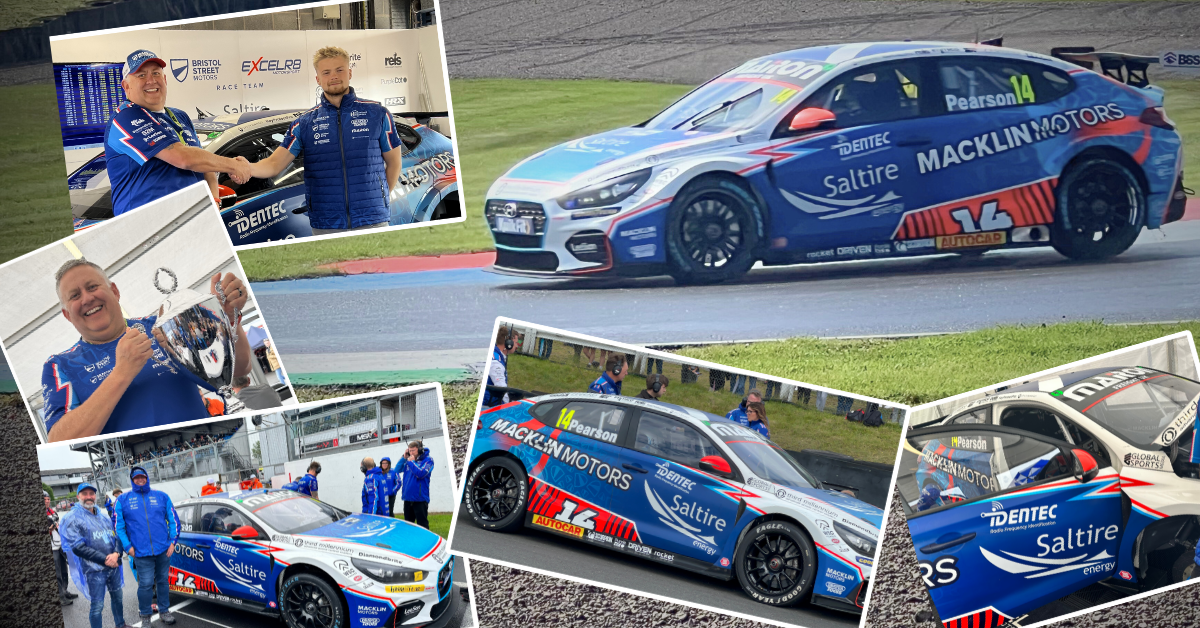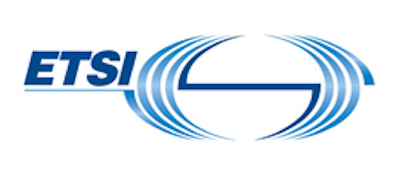

You can see RFID technology being used across many industries including institutions such as hospitals, care homes and prisons, and in sectors such as transportation and logistics. And is increasingly being used in sport, including motorsport.
According to IDTechEx the RFID business continues to grow. The global RFID market is anticipated to continue to grow in 2023, with IDTechEx projecting a market value of US$14 billion in 2023, up from US$12.8 billion in 2022.
RFID and sport
In sport the specific use of RFID can vary depending on the level of competition and the goals of organisers and teams. However RFID has become an integral part of motorsport, offering benefits in terms of fan engagement, data analytics, security, and operational efficiency.
RFID and motorsport
You may have spotted a few pictures of a car sporting the Identec logo on LinkedIn and even ITV4 recently. This is because Identec Limited are sponsoring Ronan Pearson, a British Touring Car Championships driver with the EXCELR8 team, so we’ve talked to our MD Gary Vasey to give us some insights into RFID and the sport and vehicles in general.

“Identec has been around for 40 years, about the same amount of time that I have enjoyed all kinds of motorsport,” said Gary. “It’s been a family tradition that I’ve been able to continue with my daughter.
“We are a UK manufacturer of safe and secure, performance-driven, touch-free radio frequency identification (RFID) tags and readers for commercial and industrial use. RFID technology is commonly and increasingly used in motorsport, and in particular in BTCC to validate tyre allocation over a race weekend and ensure cars do not jump the start.
“It’s also not just about the technology but the people too. The race days provide a perfect opportunity to increase our brand awareness both at the track and via its ITV4 coverage, they have opened up new business opportunities and partnerships, and have helped us to renew and invigorate existing business relationships.
“We’ve approached this sponsorship as a supportive partnership as much as we can. There’s not much we can teach Ronan about driving, but we can support his progress and help him achieve his goals.
“Just like when we work with our customers and clients, focusing on how we can help them meet and exceed their objectives and overcome business challenges, whilst aligning with their values.
“Ronan himself is a 21 year old rookie in the industry but one showing great promise. At Identec we work with many well-established global clients but are equally supportive of new starters and smaller businesses supporting them in their discovery of RFID technology and how it can help their business.”
How is RFID used in motorsport
RFID technology is used in motorsport for various purposes to enhance efficiency, safety, and overall race experience.
“There’s a great synergy and history between the sport and our industry. Goodyear began exploring RFID technology as far back as 1984 and I’ve just been reading how back in 2011 with the British Touring Car Championship they successfully pioneered a world first in motor sport tyre technology with all tyres on BTCC cars automatically scanned as the cars drive into the pit lane. This ensured that each car is using the correct and allocated tires at all times,” said Gary.
As well as tyre technology there are several more common applications of RFID in motorsport:
- Timing and scoring: RFID tags can be attached to vehicles and drivers' gear to accurately track their positions and lap times. This provides real-time data to spectators, race officials, and teams, allowing for accurate race timing, leaderboards, and insights into driver and vehicle performance.
- Pit stop management: RFID technology can be used to monitor and manage pit stops. When a vehicle enters the pit area, RFID sensors can automatically identify the vehicle and trigger various actions such as fuelling, tyre changes, and vehicle maintenance. This streamlines the pit stop process and minimises the chance of errors.
- Driver identification: Each driver can be issued a unique RFID tag that they carry. This allows race officials to accurately identify drivers entering or exiting the track, ensuring compliance with regulations and enhancing safety.
- Access control: RFID tags can be used for access control to restricted areas such as the pit lane, team garages, and hospitality suites. This helps maintain security and control over who can enter specific areas of the race venue.
- Fan engagement: RFID wristbands or cards can be given to spectators, enabling them to interact with various aspects of the race event. This might include accessing exclusive content, participating in contests, and receiving personalised information about their favourite teams or drivers.
- Inventory management: RFID tags can be used to manage the inventory of spare parts, tools, and equipment in the team garages. This helps teams keep track of their resources and ensures that they have the necessary items readily available during the race.
- Anti-theft measures: RFID tags can be used as anti-theft devices for valuable equipment, vehicles, and components. If unauthorised movement of tagged items is detected, alarms can be triggered to alert security personnel.
Overall, RFID technology enhances the efficiency of motorsport events by providing accurate data, improving safety measures, and offering engaging experiences for both participants and spectators.
RFID creative car parking solutions
Radio-Frequency Identification technology is used with vehicles for various purposes, primarily related to tracking, security, access control, and data management.
“It’s not just on the racing track that RFID benefits vehicles,” says Gary. “One of our most popular applications is that of car parking management, as a common problem for many organisations is car parking and insufficient spaces.
“By applying our RFID technology vehicles can also be tagged allowing for efficient car park entry and exit, controlling access through short-range, medium-range, and seamless long-range, driver and vehicle identification.
“By detecting available parking, this saves time for people but also gathers data that can be applied to the management and planning to improve efficiency,” said Gary.
Working with many sectors we are seeing the impact that RFID technology can bring as a business solution, bringing added speed, accuracy, efficiency, and security to operations, supporting our customers and clients, while wishing Ronan the very best of luck on the racetrack.
Posted: Monday, 2nd October 2023









-(350-×-210px)-(1).png)
